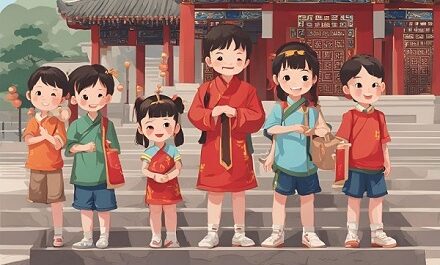Learn Chinese Idiom with Pinyin and English
- Idiom in Chinese-騣女痴儿。
- Pinyin of Idiom– ái nǚ chī ér.
- Idiom’s Meaning in English– This idiom refers to a young and innocent woman and a foolish child. It is often used to describe a scene where there is a lack of wisdom or experience, especially when dealing with complex situations.
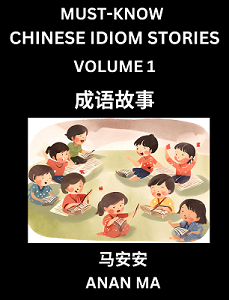
Chinese Idiom Stories Books (HSK All Levels):
- Books to Learn Chinese Idiom Stories (Part 1)
- Books to Learn Chinese Idiom Stories (Part 2)
- Books to Learn Chinese Idiom Stories (Part 3)
Learn Chinese Idiom Story in English (成语故事的英文)
In ancient times, there was a wealthy family with a young and intelligent daughter, known as “Sūn Nǚ”. She excelled in all arts such as music, chess, calligraphy, and painting, yet remained innocent and childlike. The family’s young master, on the other hand, was their precious little boy, clever but often acting foolishly, earning him the nickname “Chī Ér”.

One day, while the elders of the family were discussing an important matter, Sūn Nǚ and Chī Ér were playing and making a ruckus nearby, unaware of what was transpiring. Upon seeing this, the elders shook their heads and sighed, saying, “Sūn Nǚ and Chī Ér, when will you grow wise?”
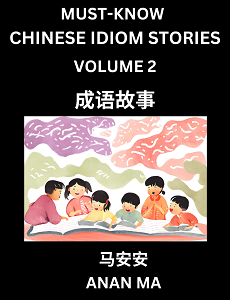
Learn Idiom Story in Chinese (成语故事)
在古代,有一个富有的家庭,家里有个聪明伶俐的千金小姐,大家都叫她“騣女”。因为她从小受到良好的教育,琴棋书画样样精通,但性格却天真烂漫,如同孩童一般。而家中的小少爷,则是家中的宝贝,虽然聪明伶俐,但经常做出一些让人哭笑不得的傻事,被大家戏称为“痴儿”。
有一天,家中的长辈们都在商讨一件重要的事情,但騣女和痴儿却在一旁嬉戏打闹,丝毫不知外面发生了什么事情。长辈们看到这一幕,不禁摇头叹息,感叹道:“騣女痴儿,何时能懂事啊!”
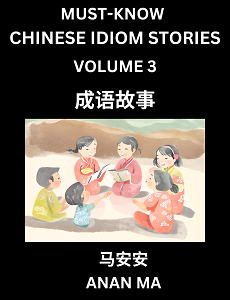
Learn Keywords with English, Simplified Chinese Characters, and Pinyin (关键词)
騣女:Ái Nǚ – Innocent young woman;
痴儿:Chī Ér – Foolish child;
琴棋书画:Qín Qí Shū Huà – Musical instruments, chess, calligraphy, and painting;
天真烂漫:Tiān Zhēn Làn Màn – Innocent and naive;
哭笑不得:Kū Xiào Bù Dé – Unable to decide whether to laugh or cry;
懂事:Dǒng Shì – To understand things;
何时:Hé Shí – When
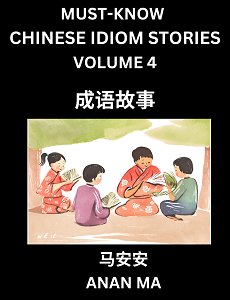
Pinyin of Idiom Story (故事的拼音)
Zài gǔdài, yǒu yīgè fùyǒu de jiātíng, jiā li yǒu gè cōngmíng línglì de qiānjīn xiǎojiě, dàjiā dōu jiào tā “zōng nǚ”. Yīnwèi tā cóngxiǎo shòudào liánghǎo de jiàoyù, qín qí shūhuà yàng yàng jīngtōng, dàn xìnggé què tiānzhēn lànmàn, rútóng háitóng yībān. Ér jiāzhōng de xiǎo shàoyé, zé shì jiāzhōng de bǎobèi, suīrán cōngmíng línglì, dàn jīngcháng zuò chū yīxiē ràng rén kūxiàobùdé de shǎ shì, bèi dàjiā xìchēng wèi “chī er”.
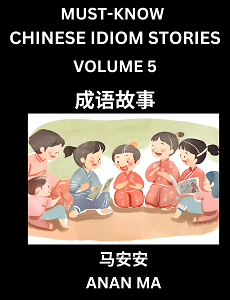
Yǒu yītiān, jiāzhōng de cháng bèi men dōu zài shāngtǎo yī jiàn zhòngyào de shìqíng, dàn zōng nǚ hé chī er què zài yīpáng xīxì dǎ nào, sīháo bùzhī wàimiàn fāshēngle shénme shìqíng. Zhǎngbèimen kàn dào zhè yīmù, bùjīn yáotóu tànxí, gǎntàn dào:“Zōng nǚ chī er, hé shí néng dǒngshì a!”

